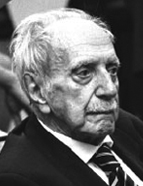

Although the concept was not a significant concern in his generation, in Brazil as in other countries, in his 1951 study on Marc Bloch, Eduardo França addressed the issue, without however naming it: “Analysis requires a language capable of providing the true contours of an institution or fact, without misunderstandings. Another major problem is that of nomenclature. History lacks the necessary terminological precision. This is the purgatory of the historian. (...) The entire French translation of the word Reich is a distortion. The bilingualism of certain eras: the language of the elites and the language of the people, one that is written and the other that is only spoken. And words from one era borrowed by another, because man does not take care to change his vocabulary when he changes institutions.” (“The Testament of a Historian: Marc Bloch”, Revista de História , no. 8, 1951, p. 440). In 1974, he returned to the subject, recalling Febvre’s concern with changes in the meaning of words and the frequency of their use, reminding himself that they were not merely a passive reflection of things, but “signs of reflection,” mediators of communication between men and expressions of social relations.
The concepts he most frequently employs in his theses and other works concern social categories – the popular classes, the mercantile bourgeoisie, the legists, the New Christians, the privileged classes, the aristocracy – institutional categories – centralisation, royalty, lordship, feudalism, absolutism, restoration – or cultural categories – the Renaissance, the Baroque. He is in tune with the classics of nineteenth-century historiography, such as Michelet, Burckhardt, Guizot and Fustel de Coulanges, as well as with the Portuguese texts of Gama Barros, Paulo Merêa, Hernâni Cidade and Vitorino Magalhães Godinho.
This work is financed by national funds through FCT - Foundation for Science and Technology, I.P, in the scope of the projects UIDB/04311/2020 and UIDP/04311/2020.
